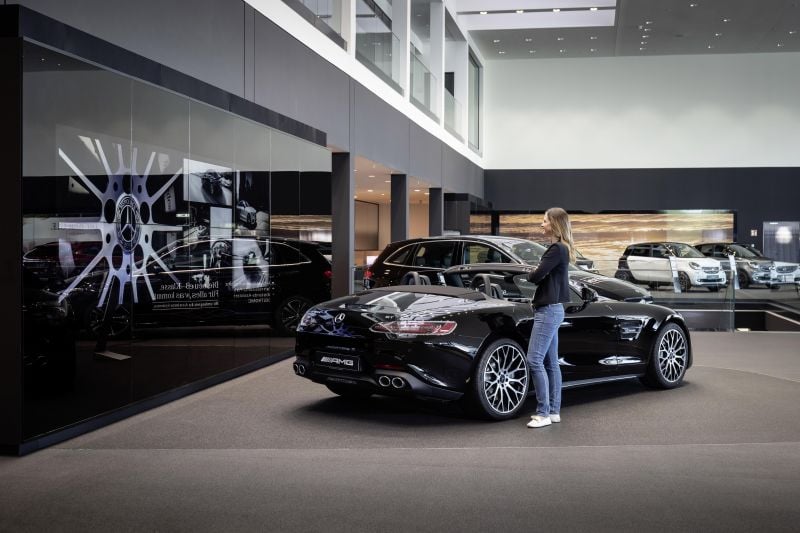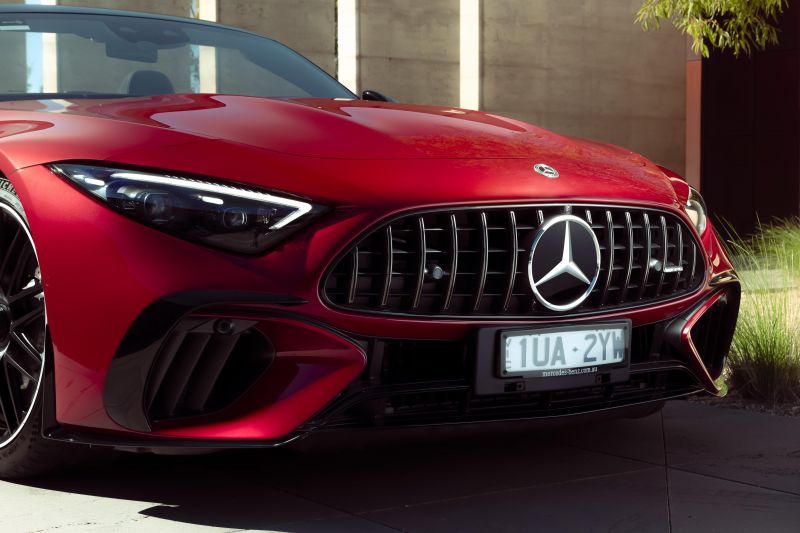The Federal Court has handed down judgement in a high-profile, long-running case between Mercedes-Benz Australia Pacific and a majority of its franchise dealers, who wanted compensation for being required to adopt a no-haggle ‘agency’ sales model for new cars.
Justice Beach today dismissed the dealers’ request to be compensated by Mercedes-Benz for the revised terms of its franchise agreements, based on the car company’s claimed appropriation of their goodwill and customer relationships without adequate consultation, conducted in bad faith.
The legality of switching to this agency model and not renewing existing franchise arrangements wasn’t at the heart of the case, rather compensation was, although Justice Beach indicated Australian franchise law may once again need to be revisited and potentially modified.
It was reported at the time that the compensation being sought was around $650 million.
The case, which commenced in October 2021, has been billed as a landmark one for franchise law in Australia, given many carmakers are considering a switch to this retail model, meaning it could set a precedent in regards to compensation paid to dealers pushed into new franchise agreements.
Mercedes-Benz and Honda are two of the brands in Australia running the agency model, in which the carmaker maintains stock until delivery, setting the price and using dealers as handover agents or test drive centres on fixed commission. This means no more haggling.
Many franchise dealers including the 38 (of 50) Mercedes-Benz retailers in this case say the newer business model leads to higher prices for consumers, as well as a greater share of profits going to multinational carmakers rather than Australian dealer businesses.
The applicants’ case also alleged that Mercedes-Benz Australia Pacific was merely acting on behalf of Mercedes-Benz AG in Germany, given the fact the luxury brand is introducing this model to many other parts of the world.
Mercedes-Benz Australia Pacific for its part said all along that it consulted its dealer body and convinced them to sign new agreements, and believes the agency model is better for consumers because everyone pays the same price for the same car, with clarity.
“It will provide greater price transparency, better choice and a larger model availability for all customers,” the company said at the time of the case kicking off.
“It is disappointing that some dealers have taken this action, but we believe the Mercedes-Benz agency model is compliant with all relevant Australian laws, and we will be defending our position vigorously.”
Justice Beach today outlined reasons for his decision over 3752 paragraphs, not including anything redacted due to commercial sensitivity, which you can review in full here if you want to know the full situation.
“It is said that the agency model implemented in Australia involves the appropriation of the dealers’ goodwill and customer relationships for no or inadequate compensation,” Justice Beach said.
“It is [also] said that the purpose of issuing the non-renewal notices was to terminate the dealer agreements and force the applicants to enter into the agency agreements to achieve the purpose and effect of transferring the goodwill in each applicant’s dealership to MBAuP.”
However, the judge found that Mercedes-Benz “exercised the non-renewal power [of existing franchise arrangements] for the purpose for which it was created”, and had not engaged in any alleged unconscionable conduct in contravention of Australian Consumer Law.
“I agree with MBAuP that the applicants in essence seek to rewrite the contractual bargain struck by the dealer agreements into one which better suits their commercial interests. They seek to convert the commercial judgement they made when they entered into those agreements into a guarantee of permanent tenure,” Justice Beach added.
Justice Beach did however give Mercedes-Benz a clip near the end of his judgement, saying “the extensive confidentiality claims that were made” by the carmakers’ Australian and global arms “hampered the smooth running of the trial to some extent”.
The issue of court costs was deferred, but will no doubt be argued over. It will be interesting to see if the relationships between the 38 applicant dealers and Mercedes-Benz Australia Pacific change moving forward now that there’s a judgement.
There will also be a further case management hearing “on a date to be fixed” to deal with confidentiality issues, meaning the dissemination of additional evidence from the case.
Commenting on the outcome, Mercedes-Benz Australia Pacific said: “We welcome the court’s decision. Our focus continues to be on delivering luxury, high performance cars for our valued customers around Australia”.
Speaking on behalf of Australia’s car dealers, Australia Automotive Dealer Association (AADA) chief James Voortman told us he and his clients were disappointed with the judgement.
“The Dealers are weighing up their options and as an industry we will carefully consider this judgement as more detail comes to hand,” he said in a provided statement.
“I do note that the judge said that while the Dealers were successful on matter of fact, they failed on matter of law. He also stated that further consideration needs to be given to the terms of the Franchising Code and possible modification.
“We clearly feel that we need stronger legal protections for automotive franchisees and the AADA will use the learnings from this case to try and shape the Federal Government’s current review of franchising laws”.
For more background on this issue, read more content below.
MORE: Mercedes-Benz versus dealers: Agency battle Federal Court date secured
MORE: Mercedes sticks to its guns, dealers seek compensation over agency switch
MORE: Australian dealer association savages Mercedes-Benz, FCAI over ‘fake news’








